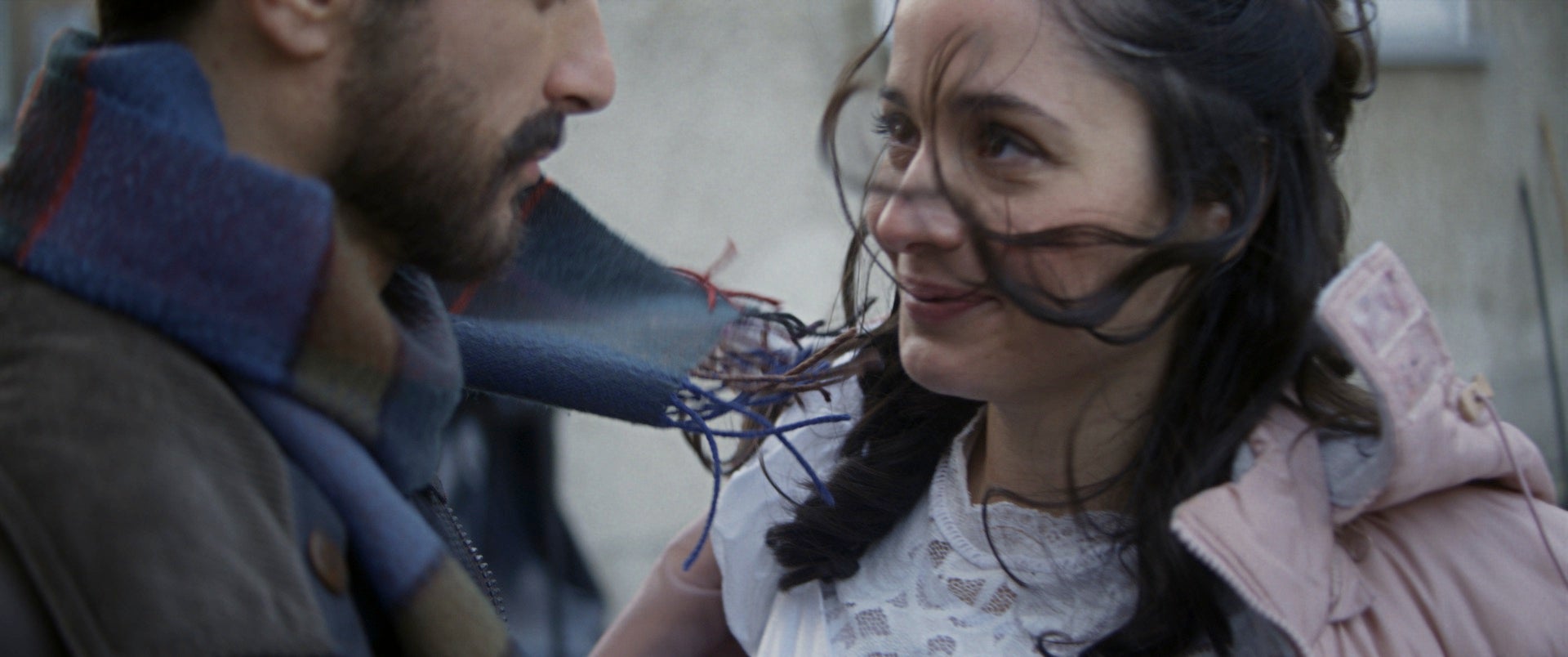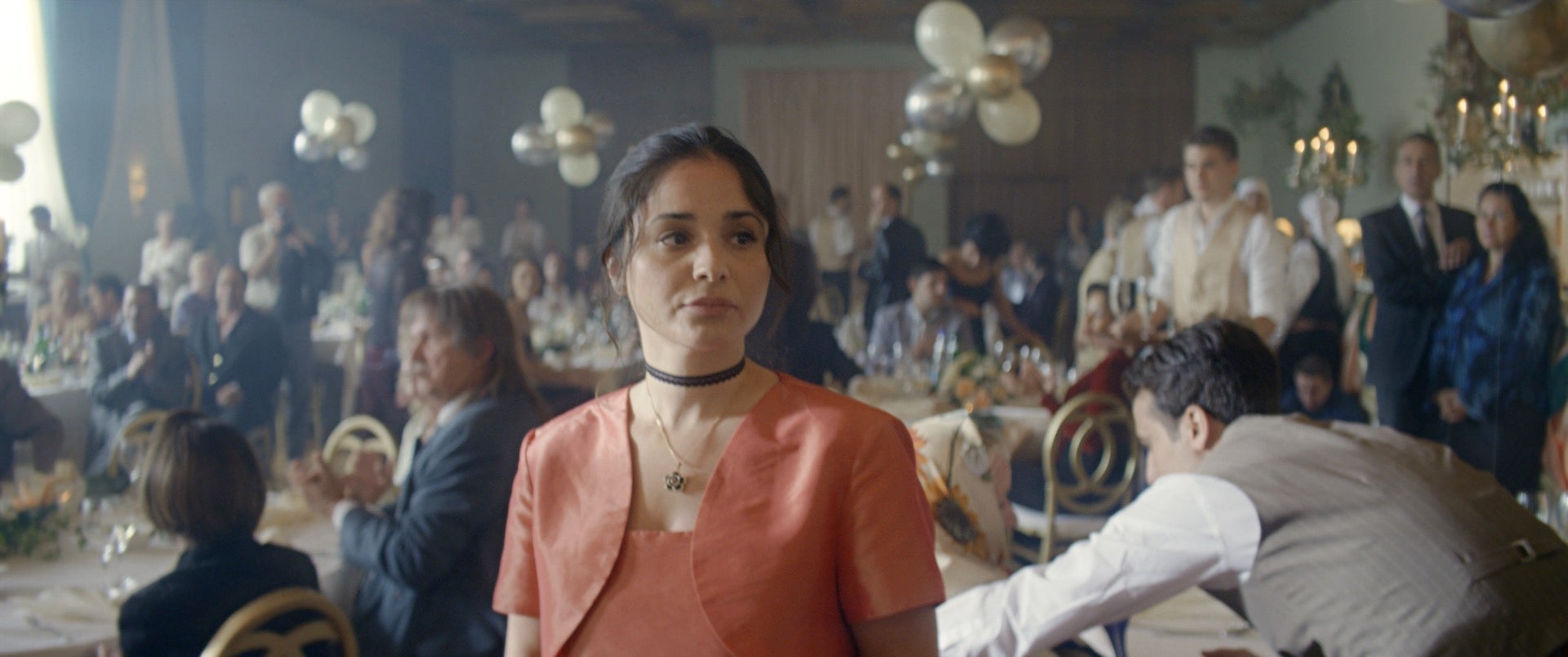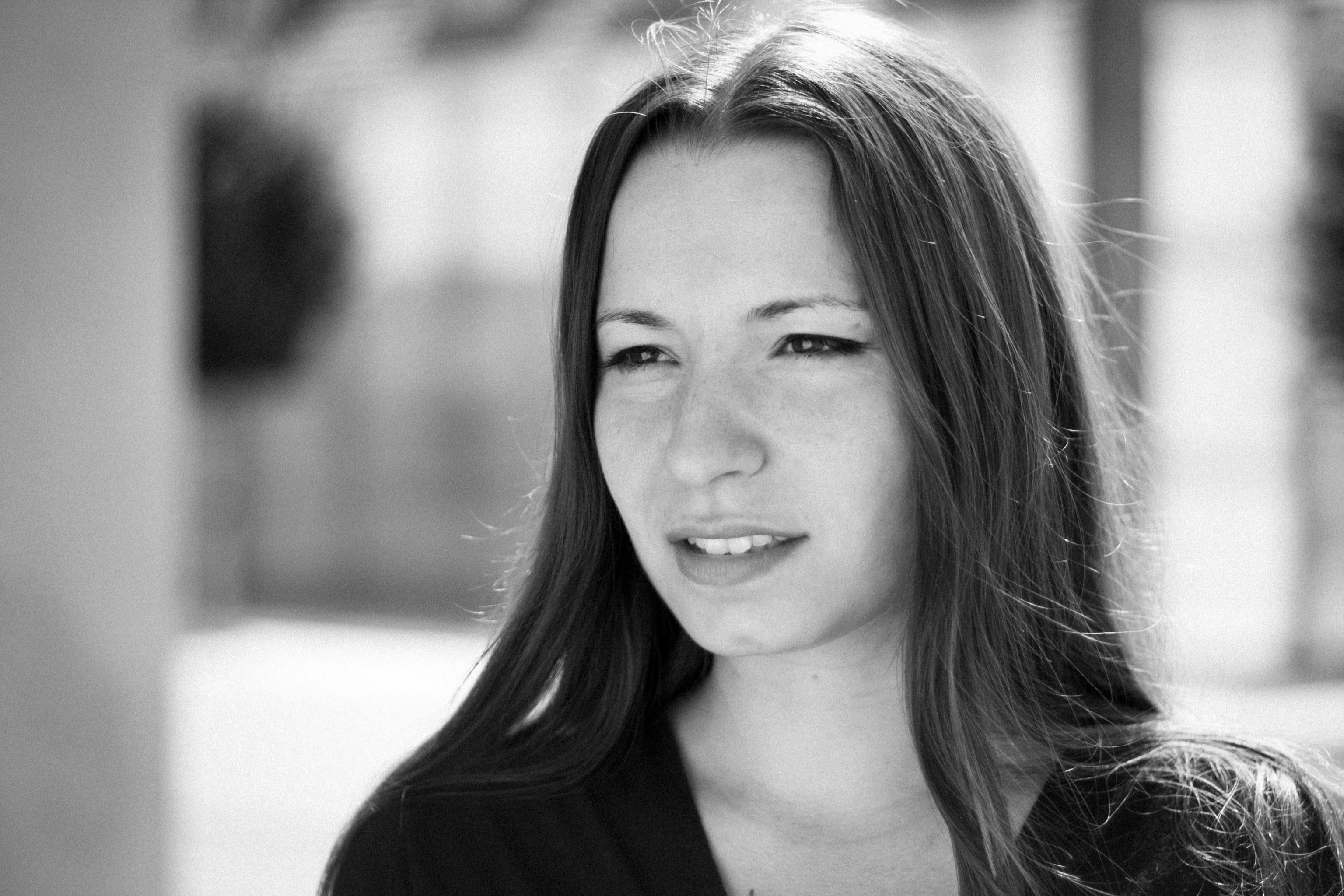‘Copilot’ film: Examining the life of a terrorist’s wife raises more questions than answers
For director Anne Zohra Berrached, her film ‘Copilot’ is less about the tragic events of 9/11, and more about the trauma of being forced to watch the person you love turn into a stranger

In an era where more and more families and relationships are divided by ideology, our film Copilot portrays a time before the “big bang” of political polarisation: the end of the 1990s. An amour fou, if you will, against the backdrop of a terrible historical event that we all know, which, in its violence and symbolic power, created a long-lasting void and enigma within us all. Twenty years later, 9/11 lives with us.
My screenwriter, Stefanie Misrahi, and I wanted to bring a love story fraught with this political polarisation to the big screen. It’s a film about power and defeat, life and death, a couple that fights and lies to protect their relationship, and hurts and loves one another. A woman becomes embroiled in a tangle of events that changes her entire life… and the rest of the world, at that. Our protagonist is Asli, who at the end of the story has been so irrevocably destroyed that she cannot help but ask herself is she could have acted differently.
Along with producers Roman Paul and Gerhard Meixner, I began the substantive process of gathering materials, shedding light on murderous terrorists and their wives. Two protagonists emerged, partially from the material we had gathered, and partially from our hearts and minds: Asli and her husband, Saeed, a reimagining of the hijacker-pilot Ziad Jarrah on the ill-fated United 93 flight, which was hijacked as part of the 9/11 attacks but crashed into a field in Pennsylvania after a passenger revolt. Examining the emotional life of the wife of a terrorist cannot be fact-driven – although Copilot is based on heaps of source material, the film isn’t simply the narration of a historical sequence, but rather a distillation of stories and characters we encountered along the way.
Copilot begins with a young, blossoming, naive love. In filmmaking, the unimpeded carefreeness of one’s early twenties should be palpable in the colour palette and locations: pastel tones, perhaps even in the sense of rose-coloured glasses, and that ex-GDR atmosphere that was still so tangible in the ’90s. The carousel at the beginning of the film is a symbol of what’s to come: a world that’s almost a little fairytale-like and rustic. The German seaside is where German-Turk Asli and Lebanese Saeed meet. This part is young and bright, with a reduced palette and few patterns, in contrast to the darker, more satiated colours and restless patterns at the end of their story.
It was important for me not to glorify or celebrate the ’90s through set design and costume (as is so often the case in historical films). I didn’t want to drown out the two main characters and their conflict with intrusive backgrounds, or let the set distract from this focal point. Our film, however, wasn’t supposed to take a purely realistic approach, but rather to captivate the viewer with its subtleties, imperceptible, much like the way Asli is enchanted by Saeed. Unlike my other films, it was important for me to firmly control the look of the images, yet let them seem uncontrived by employing a handheld camera.
Like our lead character, Asli, and her husband, Saeed, I grew up in two worlds
Like our lead character, Asli, and her husband, Saeed, I grew up in two worlds. As the child of an Algerian in the GDR, I know the balancing act between a western lifestyle and Muslim culture. My father was only a Muslim when it suited him. When we had visitors from Algeria, the Quran was opened, prayers we recited and pork was renounced. My father found it difficult to act out his faith in Germany. Copilot is also a story about the contrasts facing migrants from the Islamic cultural sphere, their interactions with one another and with the west, and the way their feelings find expression.
Asli and Saeed both feel simultaneously foreign and at home in Germany. It was important to me to show a variety of Muslims in Germany. So Asli’s mother is conservative in the traditional sense, but not in how she practices her religion. It’s a difference that’s often given too little weight in debates. Usually, it’s not so much the religion as the tradition that’s practised by the conservative. Neither Asli nor her mother wear headscarves, for example, but Asli’s sister has chosen to, adhering to her religion more closely. This isn’t addressed explicitly, but is included as an incidental aspect.

Saeed, on the other hand, is from a very liberal family. Feeling foreign when arriving in Germany, he finds a sense of familiarity in a religion he starts to turn to more and more. The change in his views isn’t something he discusses with Asli. She senses, but doesn’t inquire about it, or only does so when it’s too late. Asli’s tendency to avoid issues and suppress her feelings and needs, which might strain social relationships with her family or husband, may seem strange to western eyes, but is widely considered polite in Arab and Turkish culture.
This is something I know very well from home. Often, it’s not the truth that counts. What’s important is that personal relationships are preserved. Relationships such as a marriages or family mustn’t be endangered or damaged, and sometimes have an even higher value than one’s own genuine needs.

Feelings such as sadness, joy and anger, on the other hand, play out directly, loudly and immediately. That’s why I wanted the film to feature lots of talking, shouting and crying, while needs are only sparingly discussed. I wrote and directed the scene with Saeed’s parents in Lebanon in light of both how I experience my Arab relatives, and myself. We witness a couple in an exceptional situation and see them acting impulsively in a way that’s hard to imagine in a German family. On the other hand, we see Asli struggling with how to deal with the radicalisation of her great love. We see her difficulty in sharing her problems with her parents or with Saeed, for fear of being a bad wife, daughter or daughter-in-law. Copilot never stands still: the characters move through their emotions, suppressing or vociferously engaging with them.
Asli stands in the eye of the storm. There’s the glimmer of a possibility that if Asli had made a real effort to find out what was going on, she might have been able to anticipate the disaster and do something about it.

Maybe like Asli, citizens of the western world have to learn not to look away; to admit, whether it hurts or not, that something is awry, that we’re not making optimal use of democracy. That sometimes, a retreat into a blind spot from which we no longer have an overview, but instead the quid pro quo of apparent peace, will always come back to bite us.
At a certain point, radicalisation will have progressed so far that people can hardly be brought back. Asli senses this when Saeed returns from his disappearance. Asli’s friend advises her to separate from him, but she does the opposite.
In Buddhism, it’s said that whether one creates bad or good karma depends on one’s intentions during moments of importance. One wonders whether Asli’s intentions were self-centered or born of love for her husband. One considers and reconsiders whether one can continue to sympathise with her or whether her intentions have established her guilt. That is to say, we distinguish between subconscious actions and a more-or-less conscious repression, and evaluate these things differently.
At the end of our film, Asli has reached a point that she’ll look back on and contemplate for the rest of her life. We all know such moments
With colonisation, for example, the Europeans conducted a very conscious act of empowerment and consciously devalued people in colonised countries so as to appropriate their wealth. We’re not waking from a sleep in this regard now; it’s far more the case that we’ve consciously refashioned our own guilt into the denigration, and even destruction, of others so as to enrich ourselves. Power is the key factor here.
From the very start, Asli has no tangible power that she can either maintain or increase. The value she derives from her blindness to the facts is to be found on the emotional level; she doesn’t consciously harm others. I deliberately didn’t elaborate whether she actually knows, or could have known, what Saeed was doing behind her back.
Rather, I set out to make a film about the human drama that unfolds when you’re forced to watch the person you love turn into a stranger. What particularly interests me is the way Asli deals with the doubts that occupy her. She knows Saeed is planning something behind her back, but will go no further than a certain extent in confronting him. She loves Saeed and senses that if she goes deeper, their relationship will collapse. Asli remains silent to preserve their love. She doesn’t stand up for what she wants. She doesn’t say out loud what she thinks, but acts in the background because that’s who she is and how she’s learned to behave.
She’s a character whose actions are passive. Passivity in a lead is a no-go for screenwriting. It was a challenge for Asli’s actor Canan Kir, screenwriter Misrahi and I to depict the mechanisms of repression without portraying her as ignorant or naive. We equipped Asli with ambition and intelligence. She has accomplished a great deal compared to the family background she comes from. Her mother and sister lead lives that have nothing in common with her own. Asli had to struggle with great tenacity to attain the lifestyle she has chosen for herself. To me, Asli is a strong character, even if she doesn’t act with strength in interpersonal relationships. We created scenes between Asli and her mother to show how much they love one another, but much as in her relationship with Saeed, Asli can barely oppose her overbearing mother, or at least not directly. So as not to endanger their relationship, she secretly pursues her goals behind her back. Asli has never learned to resist dominance.
For me, Copilot is a film about a woman who grasps, but too late, that she could’ve acted in a more emancipated way. I hope it manages to trigger in viewers an urge to shake Asli, to wake her and say to her: talk to Saeed, pose more questions, don’t be satisfied with what he tells you. Emancipate yourself and follow your heart, even if it comes at a price.
At the end of the film, Asli has reached a point that she’ll look back on and contemplate for the rest of her life. We all know such moments. Looking back, we ask ourselves why we acted the way we did. Was it an unconscious action, something that just happened to us, or was there a point of growing awareness? Did we repress it, intentionally look away? This is the point where we want to undo something but can’t. It’s the issue of complicity that will forever echo in Asli.
I want to make films that don’t end with answers, but send forth their viewers with questions; questions that aren’t easy and that everyone will answer differently. Copilot poses the question: is one guilty if one doesn’t want to acknowledge the truth, hasn’t experienced its consequences or has wilfully ignored them? What is Asli’s guilt if she has acted in the name of love and only acted in accordance with all she has learned?




Join our commenting forum
Join thought-provoking conversations, follow other Independent readers and see their replies
0Comments